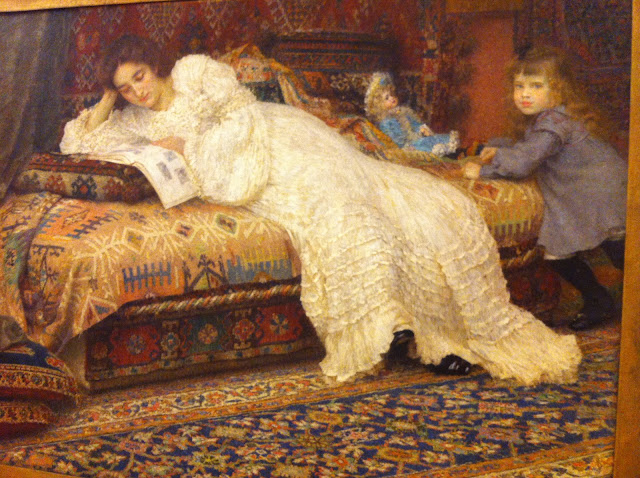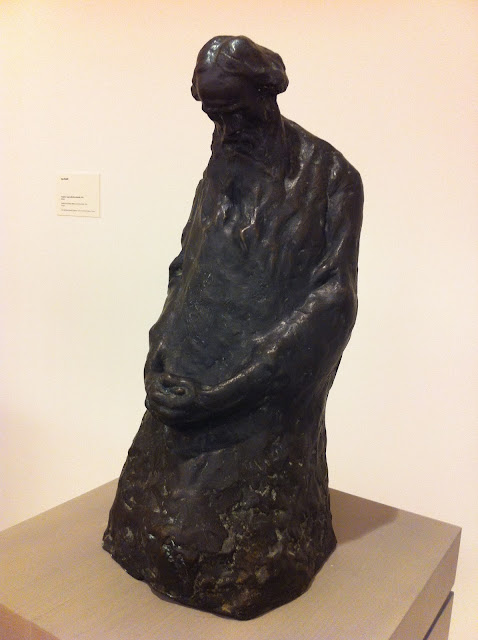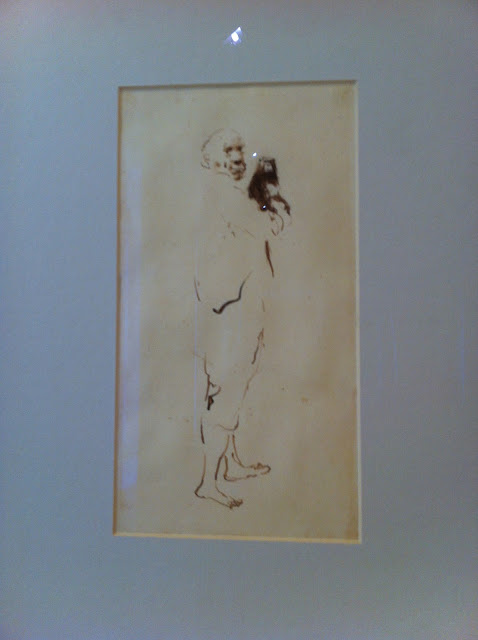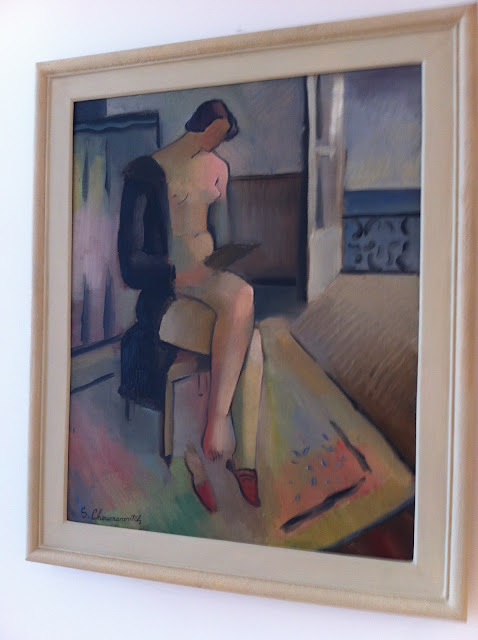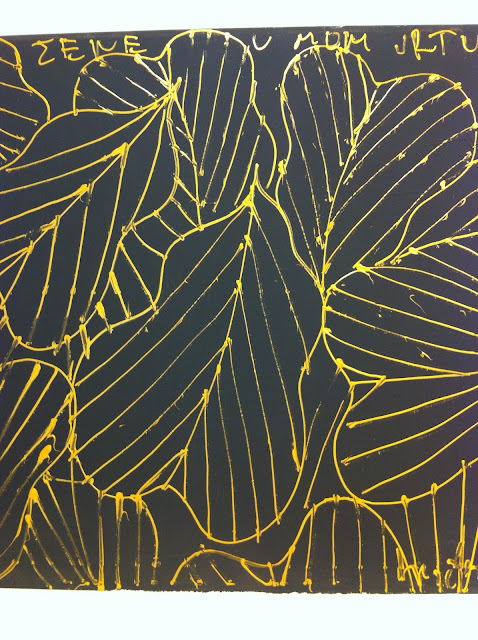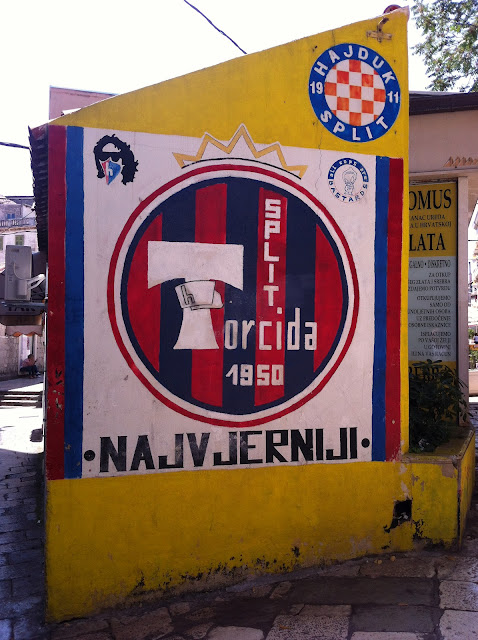 Like most modern readers, I didn't come to this book uninitiated: the 1961 film version is one of my all-time faves. This is my first Truman Capote though, so that was something, although the stories and folklore surrounding his work made him feel familiar enough even before I started reading.
Like most modern readers, I didn't come to this book uninitiated: the 1961 film version is one of my all-time faves. This is my first Truman Capote though, so that was something, although the stories and folklore surrounding his work made him feel familiar enough even before I started reading.
The edition I read, the Penguin Modern Classics edition, published in 2000, has been superseded by 'new ed.' 2000 version, with the cover you see displayed. Like this edition though, it also featured three of Capote's short stories: 'House of Flowers', 'A Diamond Guitar' and 'A Christmas Memory', as 'Breakfast at Tiffany's' itself is a mere 100 pages.
Breakfast at Tiffany's
'Breakfast at Tiffany's', as I'd hoped, is a gorgeous story, with jubilantly lively writing, the irrepressible Holly Golightly and New York city, full of glamour, potential and portent. I imagine you know the story: young writer moves into an apartment building in New York, is intrigued by his mysterious socialite neighbour, who thinks nothing of telling you what she wants to tell you, but will tell you nothing really of herself, and a relationship between them builds in which he immortalises her character, which alternatively delights and repels him, but always intrigues. She is one of the seminal character sketches, longing for both a solution to the 'mean reds' whilst abhorring the idea of ever being tied down.
The main thing that's stayed with me from it is that reading this story feels eerily like watching the film. The majority of it is the same, which never happens with adaptations. I don't mean it as a criticism, as it was actually a delight; much of the dialogue seems to have been lifted verbatim and the settings and scenes seem stunningly imagined/re-imagined in large part, down to the very last detail. There were a few structural changes made, but take this as your spoiler alert, as I'll discuss them below.
And there's Holly. Audrey Hepburn did a stunning job of making film-Holly much more likeable than book-Holly, I thought, although What. A. Character. - no wonder she's lasted. She twists and turns and contradicts herself and sits there flashing you a smile, fully formed and elusive on the page. Book-Holly seems flakier though, and less like someone you'd happily let pick you up and put you down and allow to crawl in through your bedroom window at 4am without asking too many questions. It's more realistic I suppose, and quite a bit less Hollywood: '$50 for the coat check' is rather more explicitly described, and the implication of a relationship between Holly and 'Fred'/the narrator seems paradoxically far more likely before the big reveal, and also silly in parts, as both Holly and the narrator seem to suggest throughout that he is, in fact, gay. I know that must seem kind of strange, but book-narrator seems less infatuated with an idea of her, and more in touch with the real Holly, who endlessly refuses to admit the real circumstances of her life in favour of something more hopeful and nebulous.
And that's the big structural difference *spoiler* - she breaks her bail after the Sally Tomato scandal and goes off to Brazil. The narrator is in a limo, which substitutes for the taxi, with her just the same, as she changes her wet clothes and debates what to do, and she also lets Cat out in the street and he calls her a bad person, but then she's off, and the narrator only finds Cat some weeks later, sat, looking very content, in the window of another house.
'She rubbed her nose and concentrated on the ceiling. 'Today's Wednesday, isn't it? So I suppose I'll sleep until Saturday, really get a good schluffen. Saturday morning I'll skip out to the bank. Then I'll stop by the apartment and pick up a nightgown or two and my Mainbocher. Following which, I'll report to Idlewild. Where, as you damn well know, I have a perfectly fine reservation on a perfectly fine plane. And since you're such a friend I'll let you wave me off. Please stop shaking your head.'
'Holly. Holly. You can't do that.'
'Et pourquoi pas? I'm not hot-footing after Jose, if that's what you suppose. According to my census, he's strictly a citizen of Limboville. It's only: why should I waste a perfectly fine ticket? Already paid for? Besides, I've never been to Brazil.'
This alters the beginning of the book too: we are introduced to the setting and to Holly when Joe Bell, who runs the bar close to the building they lived in, calls to say he's been in contact with Mr. Yunioshi, who was in Africa and found a tribesman with a wooden statue head that is the spitting image of Holly. So that's where she went when she left New York, they guess...and so he tells us how this all came into being. It's quite funny, I suppose, but apparently the likeness of the carving is so like her that there is no mistaking it, and in 1944, pre-facebook, I suppose looking for wooden carvings that resembled old friend's faces is the way you kept track of who was doing what and where in the world... Also, her husband Doc appears, just the same, but that is almost a side note, and is dropped much more quickly as a plot point than it is in the film.
I loved this story, which is a novella by definition, and devoured it in a day. I suppose the truest compliment I can pay it is that the novella is worthy of the film, and the film is worthy of it. Both are fuzzy and vibrant and wonderful. Some of the dialogue is original though; I spent the whole book looking for my favourite line,
'I'd marry you for your money in a minute'
but, alas, no. Capote is a hell of a writer though, even if this is the only story of his I ever were to read.
But, we know that not to be the case...
House of Flowers
This is another stunning story. It is about, although not narrated by, Ottilie, a teenage girl who comes down from her adoptive family in the Haitian mountains to Port-au-Prince and ends up, after dropping all of the rice that she has been entrusted to sell, as the most popular girl in the Champs-Elysee brothel. At a cockfight she meets Royal Bonaparte, a boy with a house of flowers in the mountains too. They get married and six months after her absconding with him her family and friends all presume that she must be dead.
In reality she's living in this house of flowers with Royal and his evil grandmother Old Bonaparte, who makes spells. She hates Ottilie and takes every opportunity to criticise and pinch her, and starts doing disgusting, witch-crafty things, like putting cat heads in her sewing basket and snakes in her food. Ottilie turns these spells around with effective effect, whilst Royal starts to return to his pre-wedding behaviours.
I don't want to give any more of the plot away, but this is a story about the satisfaction that can come with love, however abusive, and the challenges that a person can, frankly, take pleasure in overcoming.
Haiti is beautifully evoked - the whole story felt hot, heavy, dark and fragrant, and completely divorced from the New York which I'd been living in just a few pages before, and Ottilie is a great, three-dimensional character, as are, to a slightly lesser degree, Royal and Old Bonaparte.
This story subverted my expectations throughout, turning on a knife edge at one point, and the ending was a surprise that had me trying to suppress the shock and surprise on my face in a coffee shop, which seems a bit daft now as the rest of the country was sat elsewhere, watching the first England game.
Anyway,
'House of Flowers' is a really great short story, and a lesson in how to write them for best effect.
A Diamond Guitar
The Diamond Guitar, the third story of four, is a story told in retrospect about a prison farm in an American forest where Mr Schaffer, one of few literate men in the prison camp and your classic old-timer, befriends Tico Feo, a young Cuban inmate with a diamond guitar, given to him by his sister, who also, incidentally, has a ruby guitar too. A relationship builds between the two men and they start to consider attempting some kind of prison break.
I thought this was the weakest of the four stories, and I struggled to get into it before it was over, so much so that I don't remember the detail of what happened. I'm still wondering though how a man could be allowed to keep something like a diamond guitar with him in a prison - it's a working guitar with, what I imagine, are rhinestones stuck on - and why the other men wouldn't try to steal it, but nothing happens of that sort. It was quite an artificial premise and not one that I felt particularly affected by, although undoubtedly, my opinion of it was coloured by the fabulousness of the two stories before.
A Christmas Memory
'A Christmas Memory' was a touching, bitter-sweet story, somewhat incongruous on a sunny June day, about a little boy called Buddy and his cousin in her sixties, who I'm guessing is suffering from dementia or a learning difficulty as she is treated like a child also, which means Buddy, the lady and a Jack Russell called Queenie are largely free to do as they please.
This particular Christmas memory concerns the day they want to make Christmas fruitcakes to send out by post to all the 'acquaintances' they remember together, including President Roosevelt and the knife grinder who comes to town twice a year. They then want to decorate a Christmas tree, which is very sweet, although the story is kept on the bitter side of sweet by their lack of resources and ingenuity, and also the old lady's confusion about how she's treated and the fact that Buddy will soon grow up. Loss, loneliness and the sadness that many feel at Christmas are under-lying features of this story, as well as the notion of time and the inevitable passing of special moments with people you love.
''Buddy, are you awake?' It is my friend, calling from her room, which is next to mine; and an instant later she is sitting on my bed holding a candle. 'Well, I can't sleep a hoot,' she declares. 'My mind's jumping like a jack rabbit. Buddy, do you think Mrs Roosevelt will serve our cake at dinner?' We huddle in the bed, and she squeezes my hand I-love-you. 'Seems like your hand used to be so much smaller. I guess I hate to see you grow up.'
I found this story quite moving and I can see how it attained the 'classic' status that seems to have been bestowed on it, according to Wikipedia at least, but for me it pales in comparison to 'Breakfast at Tiffany's' and 'House of Flowers.'
Title: 'Breakfast at Tiffany's'
Author: Truman Capote
Date of Publication: 1958; this edition 2000
Publisher: 1958, Random House/Hamish Hamilton; 2000, Penguin Modern Classics
Format: 157 pages, paperback, and I bought it from a used book stall in my home town for the bargain price of £4.


